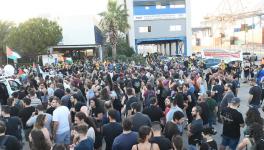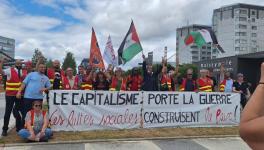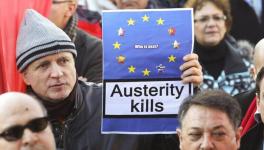Europe: May Day Unites Struggles and Resistance
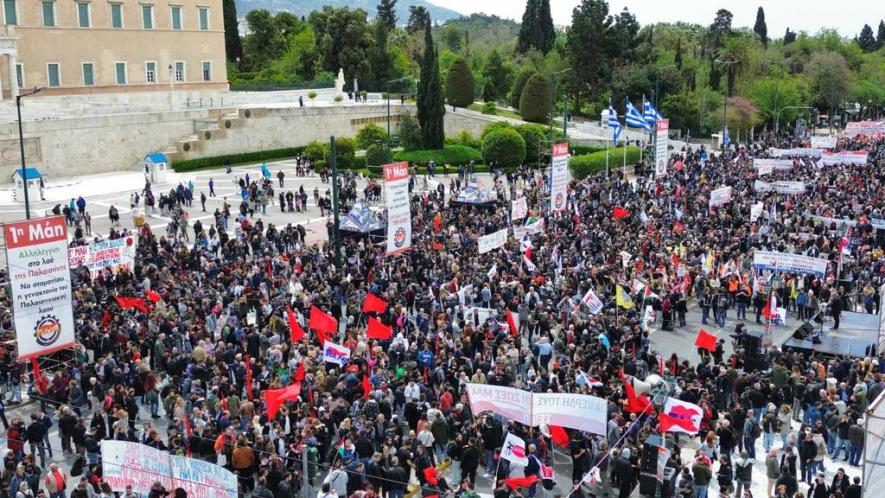
May Day rally in Athens. Source: PAME Greece/X
On May 1, hundreds of events commemorating International Workers’ Day took place across Europe, with tens of thousands of workers mobilizing for better working conditions, an end to austerity, and a radical rethinking of the region’s role in the world. Rallies and marches sought to reclaim the political significance of May Day, as left and progressive groups joined trade unions to reaffirm the need for a militant labor movement to confront the far right, militarization, and exploitation.
Demands ranged from workplace-centered issues, like improved health and safety and shorter working hours, to broader international calls for peace, the severing of ties with Israel, and a rejection of racism and austerity. These demands reflected ongoing struggles across the continent, as May Day offered a space to strengthen and weave them together.
Fighting workplace exploitation and abuse
In Italy, grassroots trade unions and left movements used the occasion to challenge the Meloni government’s claims of job growth. While Prime Minister Giorgia Meloni recently celebrated allegedly improved employment figures, protesters warned of the precarious nature of this employment. According to Potere al Popolo, 84% of new contracts in 2024 were fixed-term, and over a third of those were stipulated for the duration of one month or less. Combined with low pay, such precariousness has left many workers in poverty and vulnerable to employer abuse.
“While corporations squeeze incomes to maximize profits, workers are forced to fight for basic dignity,” Potere al Popolo wrote ahead of May 1. “In Italy, where 5 million people earn less than 10 euros per hour, the battle for a legal minimum wage is an act of resistance against structural exploitation.”
Similar concerns were echoed elsewhere. In Belgium, May Day protests targeted austerity policies proposed by the Arizona coalition government, including pension cuts, wage freezes, and new benefits for corporations. In Brussels, speakers denounced a system that protects employers while workers – those who have produced record wealth last year – are left behind. Building upon a wave of mobilization launched after the inauguration of the new government, trade unionists and activists called for wage increases and more substantial workplace protections.
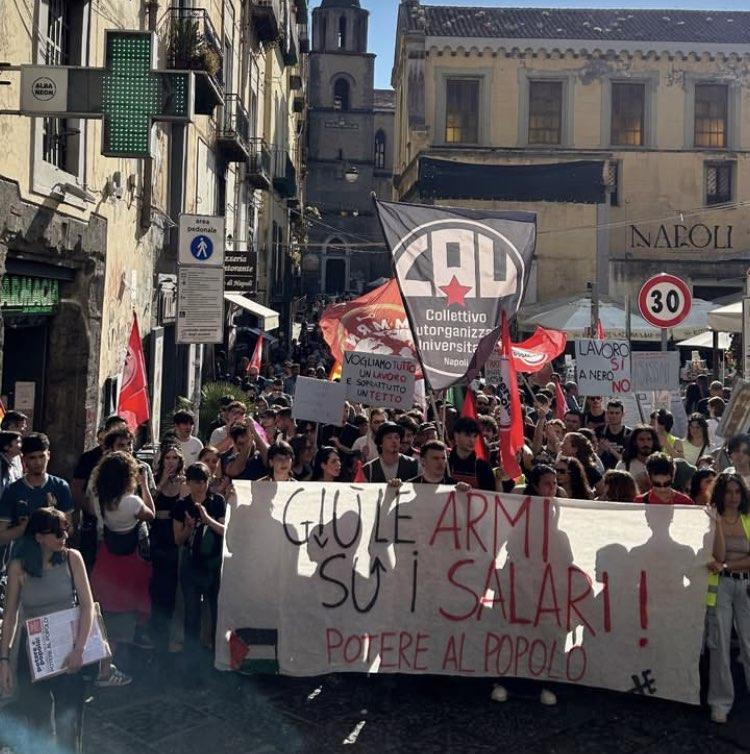
May Day event in Naples. Source: Ex-OPG Je so’pazzo/Instagram
In Greece, trade unions and other demonstrators returned to the causes of the deadly Tempi train crash two years ago – privatization and austerity – policies that lead to hundreds of workplace deaths each year. In Italy, protesters highlighted the deaths of dozens of workers killed on the job every month, often exploited by unscrupulous employers through informal labor arrangements. Many of them come from migrant backgrounds, including 17-year-old Yassine Bousenna, who died of work-related injuries after being abandoned outside an emergency room in April.
Resisting a system driving Europe’s workers to ruin
Throughout the day, trade unions emphasized that workplace struggles are inseparable from broader attacks on civil rights and social justice. In Serbia, this convergence of struggles materialized in a joint mass demonstration of labor and student groups that have built a nation-wide movement for accountability and justice for the victims of the 2024 train station collapse in Novi Sad.
Elsewhere, solidarity with Palestine was among the main action points of the day. Symbols of Palestinian liberation figured prominently, with many groups condemning European support for Israel’s genocide in Gaza. Spain’s Comisiones Obreras called for the cancellation of arms contracts with the occupation force, while others drew links between European support for Israel and the region’s growing militarization.
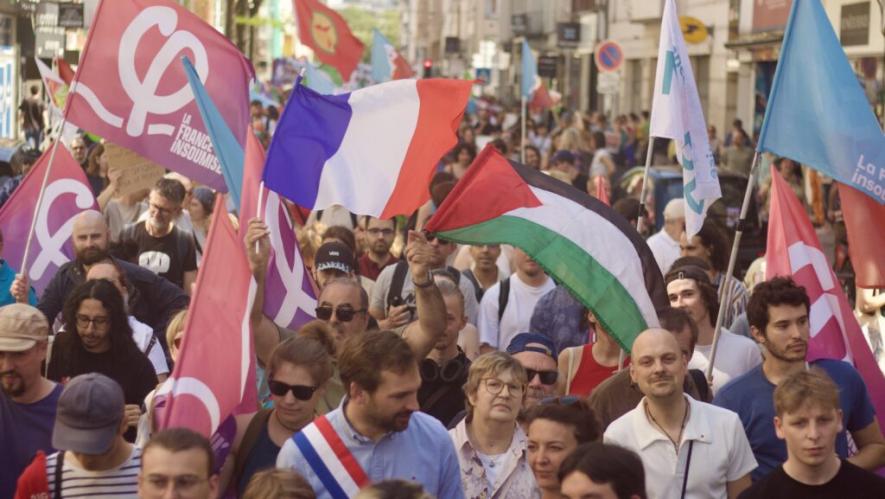
May Day rally in Lille. Source: Jeunes Insoumises/X
These connections led to even more calls to oppose Europe’s armament agenda. Across several countries, trade unions and left movements are planning further mass mobilizations in May and June against war, militarism, and the growth of the far right. “Instead of war, we need to strengthen our democracy in the face of foreign interference and attempts by billionaires to destabilize the world,” read a joint May Day appeal from French trade unions. “We need to give our public services, schools, hospitals, and universities the means to function instead.”
Many speakers also challenged Europe to imagine and build a different world. Speaking at a rally in Paris, Jean-Luc Mélenchon called on the public to “abandon the old worldviews based on growth, imagine a different organization of the world, another model of production, another framework for life around which we can come together.” He also called for “resistance to capitalism, resistance to ecological negationism, resistance to greed as the driving force of existence, resistance to the commodification of everything, resistance to everything that is leading us into ruin.”
A similar spirit of defiance was present in Antwerp, where historian Vijay Prashad reminded demonstrators of the power rooted in solidarity and collective action: “The working class built this world. Why should we be afraid? It’s our world.”
Courtesy: Peoples Dispctch
Get the latest reports & analysis with people's perspective on Protests, movements & deep analytical videos, discussions of the current affairs in your Telegram app. Subscribe to NewsClick's Telegram channel & get Real-Time updates on stories, as they get published on our website.












